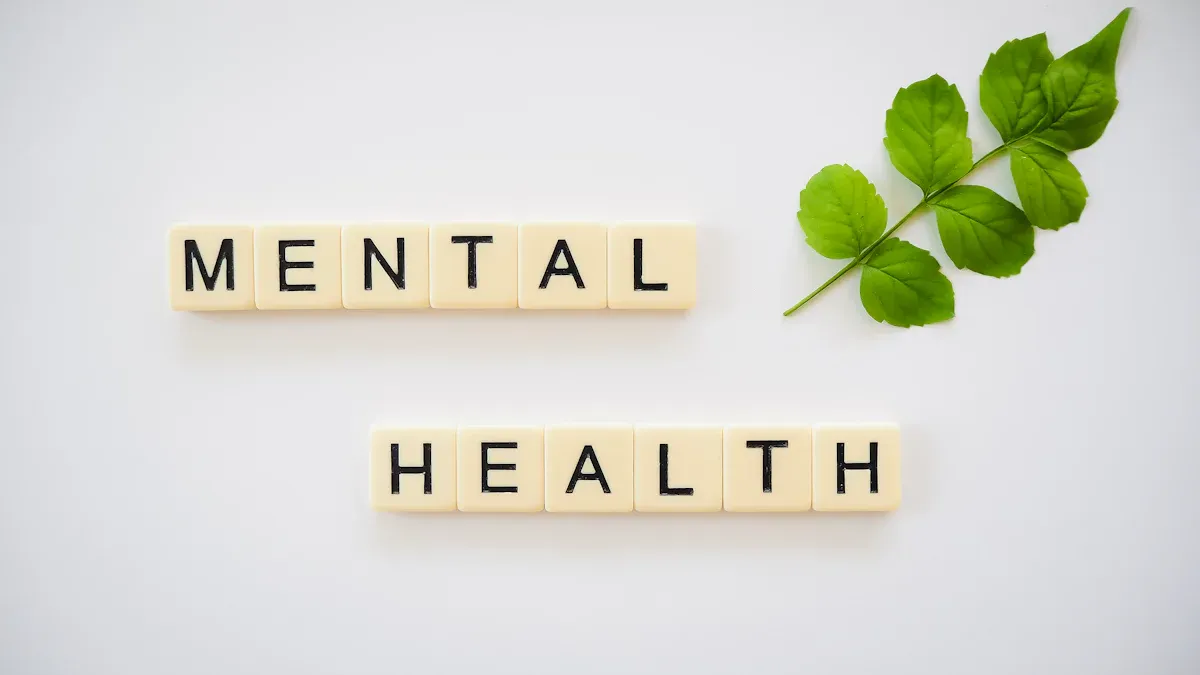Reclaiming Your Reality: A Guide to Healing from Gaslighting

How to Heal from Gaslighting with Therapy and Self-Care
If you feel confused or uncertain because of someone’s words or actions, you’re not alone. The healing process after gaslighting can take time, but recovery is possible. Many people find hope and support through gaslighting recovery therapy, along with practicing self-care.
You deserve help and compassion.
Allow yourself to feel sadness and express your emotions.
Try to stay calm by journaling or using an emotional wheel as part of your healing process.
Remember, you are not responsible for the abuse.
Key Takeaways
Notice gaslighting signs. Believe your feelings and memories. Knowing about gaslighting helps you start to heal.
Get help from therapy. There are different kinds, like CBT and trauma therapy. Therapy can help you feel confident and trust yourself again.
Take care of yourself every day. Do things that make you feel good, like writing in a journal, moving your body, and practicing mindfulness.
Make clear rules for yourself. Keep your feelings safe by saying what is okay and what is not.
Find support groups. Meeting people who understand you can make you feel better and give you hope.
Not Sure If You Are Been Gaslighted?
Sometimes it's hard to recognize gaslighting and emotional manipulation. Our Gaslighting Check app helps you identify patterns and provides personalized guidance based on your specific situation.
Try Gaslighting Check App NowWhat Is Gaslighting?
Gaslighting is when someone makes you doubt yourself. They want you to question your thoughts and memories. You might hear things like, “That never happened.” Or they may say, “You’re imagining things.” Experts say gaslighting is sneaky and harmful. It is a kind of psychological manipulation. Gaslighting often happens in relationships. The person wants power or control over you. Narcissistic gaslighting is a common type. The person uses denial and blame-shifting. They also use emotional invalidation. This keeps you feeling confused.
Emotional Impact
Narcissistic gaslighting can make you feel lost. You may feel powerless and unsure. Your self-esteem can get lower. You might start to doubt what is real. Many people feel anxious or sad. Some even feel trauma after this manipulation. Here are some signs:
You feel unsure about what is real.
You doubt your own memories.
You think you are “too sensitive” or “overreacting.”
You feel alone and away from friends or family.
Tip: If you notice these feelings, you are not alone. Many people struggle with social and emotional pain after gaslighting. Knowing your feelings is the first step to healing.
Recognizing Patterns
Narcissistic gaslighting has certain patterns. You may see the person:
Changes reality and challenges your memories.
Makes you question what really happened.
Says you are exaggerating your feelings.
Tries to make you depend on their version of events.
Denies things you remember clearly.
Dismisses your emotions and says you are “too sensitive.”
Claims you are imagining things.
Tries to keep you away from others.
Makes you second-guess yourself.
Keeps important information from you.
If you notice these actions, trust your feelings. You deserve to feel safe and listened to.
Signs of Gaslighting

Common Behaviors
You may wonder if what is happening is gaslighting. Many people see the same behaviors over and over. If you notice these signs, you are not making it up. Here are some things you might see:
You focus a lot on your flaws.
You feel mixed up about your relationship.
You question your thoughts and feelings.
You say sorry all the time, even when you did nothing wrong.
Your partner lies and says things did not happen, even if you have proof.
They blame you for their mistakes, so you feel guilty.
They try to make you unsure about what is real.
They lower your confidence and self-esteem.
They want to keep you away from people who care about you.
If you see these patterns, you are not alone. Many people who go through gaslighting in relationships feel this way.
Relationship Red Flags
Some warning signs can help you spot gaslighting early. Relationship counselors talk about these red flags:
Red Flag | Description |
|---|---|
Your partner uses guilt or shame to control you and make you feel bad about yourself. | |
Gradual Isolation | They slowly keep you away from friends and family, so you depend on them more. |
Projection of Blame | They blame you for things they did, so you feel confused. |
Undermining Sanity | They make you doubt your own mind, which can make you feel unstable. |
Reinforcement of Gaslighting Cycle | Sometimes they act nice, then go back to hurtful actions, keeping you stuck in the cycle. |
If you notice these red flags, trust yourself. You deserve respect and honesty in your relationships.
Gaslighting Recovery Therapy Healing Process
Healing from gaslighting takes time. You do not have to do it alone. Gaslighting recovery therapy gives you help and support. These tools help you rebuild your life. You can find hope and strength with help.
Therapy Options
You have different therapy choices to help you heal. Each therapy helps you in its own way. Here is a table with some good therapy types:
Therapy Type | Description |
|---|---|
Cognitive Behavioral Therapy (CBT) | Focuses on changing unhelpful thoughts and actions. Helps you learn ways to cope. |
Narrative Therapy | Lets you take back your story and fight self-doubt from gaslighting. |
Trauma Therapy | Supports you as you work through emotional abuse and tough feelings. |
CBT helps you spot and challenge negative thoughts. You learn what is real and what is not. Narrative therapy helps you find your voice again. Trauma therapy helps you face pain and move forward.
Some therapists use EMDR too. EMDR stands for Eye Movement Desensitization and Reprocessing. Many studies show EMDR helps with emotional trauma. Twenty-four clinical trials found EMDR helps people heal from hard times. Some research says EMDR can work faster than CBT for some people.
You can use these therapy tools during recovery:
Cognitive restructuring
Mindfulness practices
Setting boundaries
Rebuilding self-trust
Challenging negative thoughts
Tip: You do not have to pick just one therapy. Many people use a mix to find what works best.
What to Expect
When you start therapy, you might feel nervous or unsure. That is normal. Your therapist will help you feel safe. You will talk about your experiences. You will learn how gaslighting affected you.
CBT starts by helping you spot manipulative tactics. You practice telling what really happened from what someone made you believe. Here is a table with some CBT techniques and their purpose:
CBT Technique | Purpose |
|---|---|
Identifying and Challenging Techniques | Helps you see manipulative tactics and know your reality. |
Building Self-Esteem and Resilience | Helps you feel strong and restore your self-worth. |
Establishing Support Systems | Encourages you to build healthy relationships and set boundaries. |
You will work on rebuilding your self-esteem. Therapy helps you set healthy boundaries. You learn to trust yourself again. Your therapist will remind you that you are not to blame. Over time, you will feel more confident and less confused.
The healing process is not always easy. You will see progress. You might have good days and tough days. That is okay. Healing does not happen all at once.
Support Groups
You do not have to heal by yourself. Support groups help a lot in recovery. When you join a group, you meet others who understand you. You can share your story and listen to others. This helps you feel less alone.
Studies show support groups give survivors a safe place to talk. Many people use online spaces, like Reddit, for support. Here is a table that shows how support groups help:
Evidence Description | Findings |
|---|---|
Group therapy and support groups | Help you connect, feel understood, and find support with others. |
Role of mental health professionals | Therapists lead group sessions to build community and empower you. |
A strong support system helps you heal faster. You see others have faced similar struggles. You learn new coping skills. You can celebrate your progress together.
Note: If you feel shy about joining a group, you can start by reading others’ stories or joining online forums. You can take small steps at your own pace.
Gaslighting recovery therapy gives you hope, tools, and a community. You can rebuild your life and trust yourself again.
Recovering from Gaslighting with Self-Care

Healing after gaslighting takes more than just time. You need to care for yourself every day. Self-care helps you feel safe, strong, and in control again. Let’s look at some ways you can support your recovery.
Setting Boundaries
Boundaries are like invisible fences that protect your feelings and your mind. When you set clear limits, you keep yourself safe from more harm. You also show others how you want to be treated.
Setting boundaries helps you protect yourself from more manipulation or emotional abuse.
You need to tell others what is not okay. Speak up about behaviors you will not accept.
Use assertive responses when someone tries to gaslight you.
Boundaries help you take back control of your emotions and your reality.
You can set boundaries by saying things like, “I don’t want to talk about this right now,” or “I need space.” Sometimes, you may need to limit or stop talking to the person who hurt you. This is not selfish. It is self-care.
Tip: Communicate your boundaries with calmness and confidence. If someone keeps crossing your limits, it is okay to step away to protect your mental health.
Rebuilding Self-Trust
Gaslighting makes you doubt yourself. You might wonder if your feelings or memories are real. Rebuilding self-trust is a big part of recovering from gaslighting.
Write down your thoughts and feelings in a journal. This helps you see your truth and remember what really happened.
Talk to people you trust. A therapist, a support group, or a close friend can help you see things clearly.
Practice self-care rituals. Try meditation, exercise, or spending time in nature to feel grounded.
Keep records of important conversations. This helps you stay clear about what is real.
Listen to your gut. Your feelings matter, and you can trust them.
Notice when you start to doubt yourself. Ask, “Would I question this if I hadn’t been gaslighted?”
You can also look for patterns in your thinking. If you always look for someone else to tell you what is true, pause and check in with yourself first.
Self-Compassion
Being kind to yourself is not always easy, especially after gaslighting. Self-compassion means treating yourself with the same care you would give a friend.
Notice when you are being hard on yourself. Try to silence your inner critic.
Remind yourself that you deserve love and respect.
Self-compassion helps you accept yourself and feel whole again.
It can improve your mood, body image, and even how well you do in school or work.
Try loving-kindness meditation. Say to yourself, “May I be kind to myself.”
Let your feelings come up without blaming yourself for them.
When you practice self-compassion, you heal faster. You also become better at caring for others and building healthy relationships.
Daily Practices
Small actions every day can help you heal. These daily routines support your mind and body as you recover.
Notice gaslighting tactics. Name them when you see them.
Trust your instincts. Your feelings are real and important.
Reach out to your support system. Friends, family, or a therapist can help you feel less alone.
Learn about gaslighting. The more you know, the stronger you become.
Build your self-esteem. Do things you enjoy and spend time with people who lift you up.
Set and keep your boundaries.
You can also try these self-care ideas:
Practice mindfulness or grounding exercises, like deep breathing or journaling.
Get enough sleep, eat healthy foods, and move your body with exercise.
Spend time on hobbies that make you happy, like drawing, music, or writing.
Limit or stop contact with the gaslighter if you can.
Try meditation. Studies show that meditation and exercise can lower stress and help you feel better.
Creative activities, like art or music, help you process your feelings and build emotional strength.
Note: Combining therapy with self-care gives you the best chance to heal. Therapy helps you rebuild confidence and trust. Self-care keeps you strong every day.
Here’s a quick look at how a holistic approach helps:
Approach | Benefit |
|---|---|
Mindfulness & Therapy | Helps you overcome the effects of gaslighting |
Self-Care & Boundaries | Builds emotional resilience and protects your well-being |
Support System | Gives you a safe place to share and grow |
Recovering from gaslighting is a journey. You do not have to do it alone. With the right coping strategies, a strong support system, and daily self-care, you can find your way back to yourself.
Healing from gaslighting takes time, but you can do it. Here are the main steps:
Recognize the manipulation.
Rebuild your confidence and self-trust.
Remember, you deserve kindness and patience as you heal. Support groups and trusted friends help you feel less alone.
Phase | Duration | Focus |
|---|---|---|
0-6 months | Processing and seeking help | |
Rebuilding | 6-18 months | Self-trust and new skills |
Integration | 18+ months | Boundaries and helping others |
You might want to check out books or videos for extra support. Stay gentle with yourself and keep reaching out for help.
FAQ
How do I know if I am being gaslighted?
You might feel confused or doubt your own memories. If someone keeps making you question what is real, you could be experiencing gaslighting. Trust your feelings. Talk to someone you trust for support.
Can therapy really help me recover from gaslighting?
Yes! Therapy gives you tools to rebuild confidence and trust. You learn how to spot manipulation and set boundaries. Many people feel stronger and safer after working with a therapist.
What self-care activities help with gaslighting recovery?
Try journaling, exercise, or meditation. Spend time with friends who support you. Creative hobbies like drawing or music can help you feel better. Pick activities that make you feel safe and happy.
Is it normal to feel angry or sad after gaslighting?
Absolutely. You might feel many emotions, like anger, sadness, or fear. These feelings are part of healing. Let yourself feel them. You deserve kindness and patience.
Should I cut off contact with the person who gaslighted me?
If you feel unsafe, limiting or ending contact can help you heal. You decide what feels right for you. Setting boundaries protects your mental health.